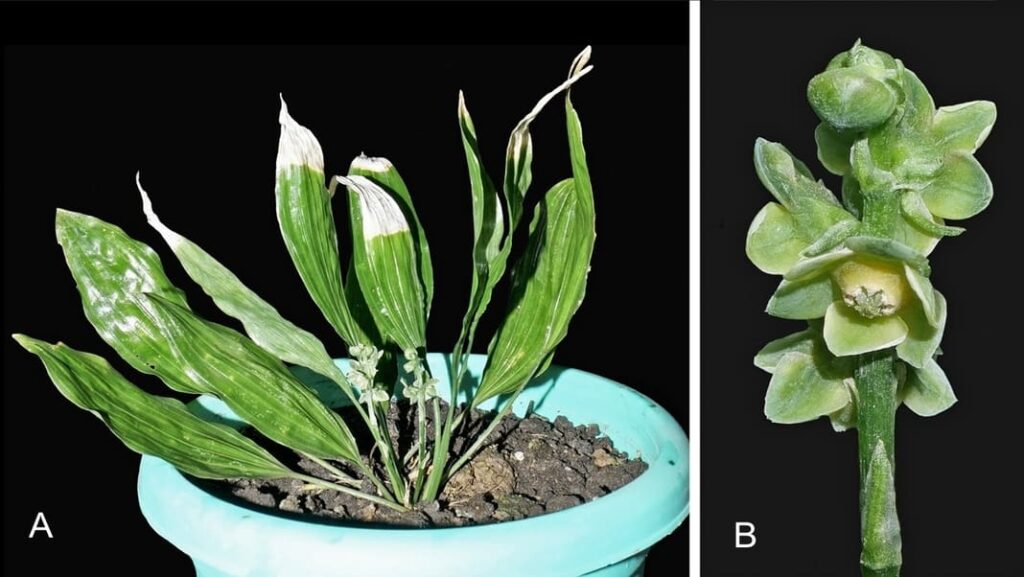Guwahati, July 24: In the remote, verdant expanse of Wari Chora gorge in Garo Hills, Meghalaya, an extraordinary discovery has set the botanical world abuzz. During a routine expedition in March 2023, Dipankar Borah from Kaliabor College, Nagaon, stumbled upon an unfamiliar species of Peliosanthes, a genus often mistaken for orchids due to their enchanting blooms.
“The moment I saw the plants, I knew I had encountered something extraordinary,” Borah recounts. Initially perplexed by the small leaves in the vegetative phase, he soon realized he had found a previously unknown species. Despite its modest size and unassuming appearance, this plant held secrets that would soon captivate botanists worldwide.
On one of his exploratory trips to Wari Chora, Borah faced a day filled with adventure. Navigating non-motorable roads and trekking up steep paths, he finally reached the majestic canyons and their cold, blue waters. It was on the return trek that he spotted the tiny Peliosanthes.

“I knew it was something I had never seen before,” Borah said. With the help of his friend Bikas Barman, who nurtured the plant until it miraculously bloomed in February 2024, he confirmed it was indeed a new species. Named Peliosanthes meghalayensis , in honor of Meghalaya, this discovery highlights the region’s rich, yet often overlooked, biodiversity.
Assisted by Dr. Noriyuki Tanaka of Japan, Borah meticulously unraveled the plant’s mysteries. “Dr. Tanaka’s extraordinary skills in identifying Peliosanthes species were invaluable,” Borah said, crediting Tanaka with teaching him the nuances of understanding and photographing these unique flowers.
Peliosanthes meghalayensis , a small, terrestrial, evergreen herb, thrives sporadically on slopes towards the Wari Chora gorge. The area, predominantly covered by primary evergreen forest, boasts a humid climate ideal for such flora. However, with the influx of humans and plans to develop the area into a tourist spot, concerns about the plant’s survival arise. From the type locality, a sporadic population of around 50 individuals was recorded, but its wider distribution remains unknown, prompting a provisional assessment as Data Deficient (DD).

